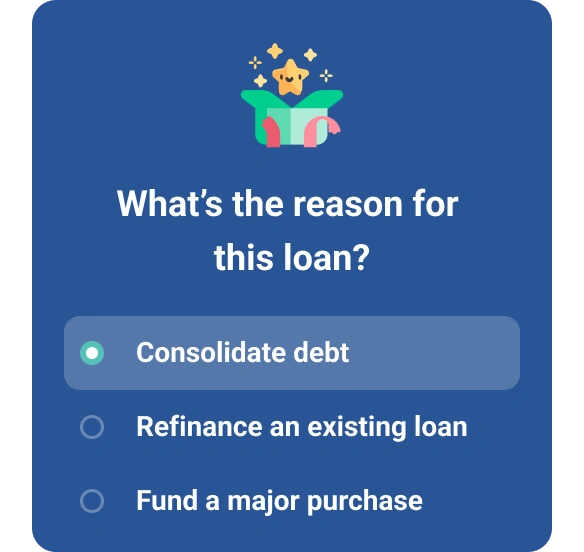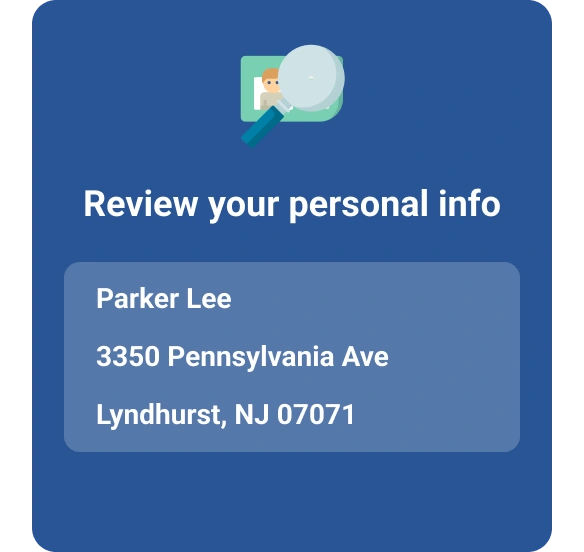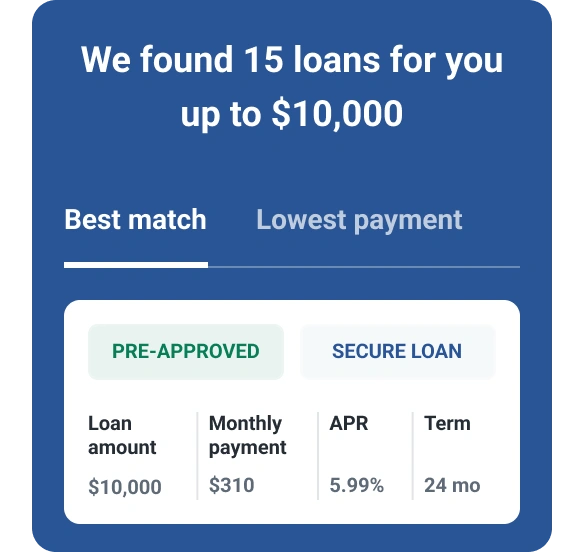Can You Consolidate Debt Without Hurting Your Credit Score?
Quick Answer
It's not possible to consolidate debt without impacting your credit score at all, but you can minimize the potential negative impacts and use consolidation to improve your credit over time.

There are many different ways you can consolidate debt, and each one will typically affect your credit score. However, there are ways to reduce the potential negative impact of debt consolidation on your credit and even use the process to improve your credit score and your overall financial well-being. Here's what you need to know.
What Is Debt Consolidation?
Debt consolidation is when you use a loan or credit card to pay off your other balances. The idea is to get a loan or credit card with a lower annual percentage rate (APR) than what you're currently paying, allowing you to save money on interest and potentially become debt-free more quickly.
Consolidation can be an appealing option if you're juggling multiple monthly payments or paying off high-interest debt. It's important to use consolidation alongside a budget to avoid the risk of going deeper into debt.
Learn more: How to Consolidate Debt
Ways to Consolidate Debt
There are few main methods you can use to consolidate debt, and the best option for you depends on your goals, financial situation and what you're likely to qualify for. Here's a rundown of your options.
| Pros | Cons | |
|---|---|---|
| Personal loan |
|
|
| Balance transfer card |
|
|
| Home equity loan or line of credit (HELOC) |
|
|
Personal Loan
Personal loans you use to pay off debt are often referred to as debt consolidation loans. On average, personal loans have lower interest rates than credit cards and offer repayment terms ranging from one to seven years. These loans are typically unsecured, so you don't need to have collateral to get approved.
While personal loans are available to a wide range of credit scores, you'll need good credit to qualify for the best terms. If your credit score needs improvement, a debt consolidation loan may not save you any money.
Balance Transfer Credit Card
These specialized credit cards typically offer introductory 0% annual percentage rate (APR) promotions, which may last up to 21 months. You can transfer a balance from another credit card, then pay it down with no interest charges until the standard APR kicks in.
While a balance transfer card can help you save on interest overall, you'll have an upfront balance transfer fee of 3% to 5% of the transferred amount. That fee will be added to your new balance.
Also, keep in mind that balance transfer cards typically require credit in the good to excellent range. In other words, they can be harder to qualify for than a debt consolidation loan—but, if you qualify, they have the potential to save you more money.
Learn more: What Is a Good Credit Score?
Home Equity Loan or Line of Credit
If you have a home with significant equity, you could use it as collateral to get a home equity loan or a home equity line of credit (HELOC). These loans have lower interest rates than personal loans, but they can come with upfront and ongoing costs. It's also crucial to understand that taking out a home equity loan or HELOC puts you at risk of facing foreclosure if you fail to repay the loan.
You'll typically need to have at least 15% to 20% equity in your home to qualify for a HELOC or home equity loan. Lenders will also check your credit and debt-to-income ratio to evaluate your readiness for a new loan.
How Does Debt Consolidation Hurt Your Credit?
Debt consolidation can help you improve your financial situation and build credit over time, but it can also lead to a temporary dip in your score. While it may be wise to focus on the big picture when considering debt consolidation, it's also important to know the risks. Here are some ways consolidating can impact your credit.
- Hard inquiry: When you apply for credit, the lender will typically run a hard inquiry on your credit reports, which can temporarily affect your credit score.
- New credit: If you get approved for and open a new loan or credit card, it'll reduce the average age of your credit accounts, which impacts your length of credit history.
- Credit utilization: Your credit utilization rate—the percentage of your credit card limit you're using at a given time—is an influential factor in your FICO® ScoreΘ. If you perform a balance transfer to a new credit card and it results in a higher utilization rate on the new card, it could negatively impact your credit score until you pay down the balance. On the other hand, if the balance transfer results in a lower utilization rate across your credit cards or you use a loan to pay off your credit cards entirely, it could have a positive impact.
- Payment history: If you miss a payment on your old accounts during the debt consolidation process or on the new loan or card after consolidation, it could have a significant negative impact on your credit score. On the flip side, making on-time payments can help you establish a good credit score over time.
Also, keep in mind that as you eliminate debt, you'll free up more cash flow in your budget. That, in turn, can make it easier to manage your expenses and avoid more debt in the future.
Learn more: Pros and Cons of Debt Consolidation
How to Minimize the Impact Debt Consolidation Has on Your Credit
While there's no way to consolidate debt without affecting your credit at all, there are some ways you can ensure that any negative impact is minimal—or at least temporary:
- Consider keeping old credit cards open. While transferring debt from one or more credit cards to a new one could result in a higher utilization rate on the new card, it can help to have a low utilization rate across all of your cards. One way to do this is to keep your old cards open, at least until you've paid down your balance.
- Pay off a balance transfer quickly. You may have more than a year to pay off your debt with no interest, but the faster you can pay down the balance, the faster your credit utilization rate will come down to a level that's better for your credit.
- Avoid applying for multiple loans or credit cards. Applying for a lot of credit in a short period can be a red flag for lenders and potentially damage your credit. Try to avoid taking out credit unless you need it. And if you get denied for a loan or credit card, wait until you know the reasons and can work on improving your credit before you apply for something else.
- Pay on time. Make it a priority to always pay your bills on time. If you miss a payment, pay it quickly—late payments don't get reported to the credit bureaus until they're 30 days past due.
Monitor Your Credit as You Work to Pay Off Debt
When consolidating debt, it's important to understand how your actions impact your credit. With Experian's free credit monitoring service, you can get access to your FICO® Score and Experian credit report, giving you valuable information as you pay down debt and improve your credit and overall finances.
If consolidating debt impacts your credit score, keep track of your progress as you work to rebuild it. Monitoring your credit can also make it easier to avoid mistakes that can damage your credit in the future.
Find out what debts you owe
Your free credit report lists all your debts, such as credit card balances and loans, helping you create a plan to tackle your debt and improve your financial health.
Review your creditAbout the author
Ben Luthi has worked in financial planning, banking and auto finance, and writes about all aspects of money. His work has appeared in Time, Success, USA Today, Credit Karma, NerdWallet, Wirecutter and more.
Read more from Ben

